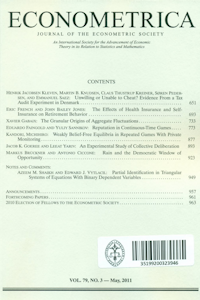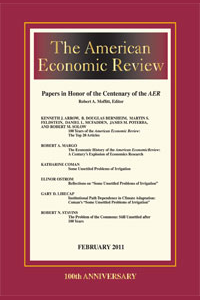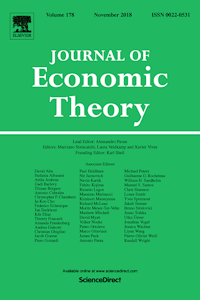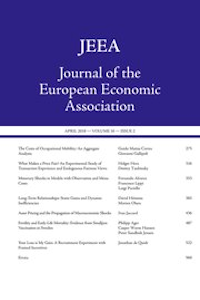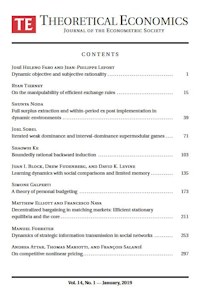
Block, J. I., Fudenberg, D. and Levine, D. K.
Learning dynamics with social comparisons and limited memory
Theoretical Economics
Vol. 14(1) pp. 135-172 (2019)
Abstract: We study models of learning in games where agents with limited memory use social information to decide when and how to change their play. When agents observe only the aggregate distribution of payoffs and recall only information from the last period, aggregate play comes close to Nash equilibrium for generic games, and pure equilibria are generally more stable than mixed equilibria. When agents observe both the payoff distribution of other agents and the actions that led to those payoffs, and can remember this for some time, the length of their memory plays a key role: With short memories, aggregate play may not come close to Nash equilibrium unless the game satisfies an acyclicity condition. When agents have sufficiently long memory, generically aggregate play comes close to Nash equilibrium. However, unlike in the model where social information is solely about how well other agents are doing, mixed equilibria can be favored over pure ones.
Keywords: Social learning, Nash equilibrium, best‐response dynamics, equilibrium selection
JEL Codes: C72, C73
Author links: Juan Block
Publisher's Link: https://doi.org/10.3982/TE2626 ![]()

